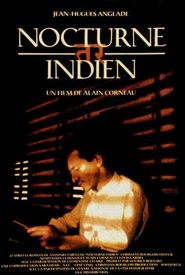Antonio Tabucchi's existence was characterized by an enduring and profound affection for Portugal, a sentiment that was first kindled during his academic pursuits at the Sorbonne in the 1960s. This initial fascination with the Portuguese language and culture was sparked by his decision to enroll in an introductory course in Portuguese, which ultimately blossomed into a deep-seated passion that would shape the trajectory of his life and career.
As his affinity for Portugal continued to grow, Tabucchi's expertise in the language and literature of the country became increasingly evident. He developed a profound understanding of the works of Fernando Pessoa, a renowned Portuguese poet and writer, and went on to become a respected critic and translator of his writings.
Noted Italian writer and academic, Antonio Tabucchi, embarked on a distinguished career marked by his passionate pursuit of teaching the Portuguese language and literature at the esteemed University of Siena, Italy. Throughout his academic tenure, Tabucchi demonstrated a remarkable proficiency in his subject matter, earning him a reputation as a knowledgeable and engaging instructor.
In addition to his academic endeavors, Tabucchi was a prolific writer, leaving behind a substantial body of work that has been widely acclaimed and translated into an impressive 18 countries. His literary output spanned a wide range of genres, including books and essays, each one showcasing his unique perspective and mastery of language.
Tabucchi's personal life was also deeply intertwined with his literary pursuits. He shared his life with his wife, Maria José de Lancastre, a fellow writer and scholar, with whom he collaborated on numerous projects. Together, they undertook the challenging task of translating the works of the renowned Portuguese writer, Fernando Pessoa, into Italian. This labor of love not only showcased their impressive linguistic skills but also provided a deeper understanding of Pessoa's oeuvre to Italian readers.
Furthermore, Tabucchi and his wife co-authored a book of essays, which offered a thoughtful and insightful exploration of Pessoa's life and work. In addition, they penned a comedy, a genre that allowed them to showcase their lighter side and sense of humor. Through these creative endeavors, Tabucchi and his wife not only celebrated the life and legacy of Pessoa but also demonstrated their own unique writing style and wit.
Tabucchi's remarkable literary career was marked by a plethora of accolades, with numerous prestigious awards and honors bestowed upon him in recognition of his outstanding contributions to the world of literature. Notably, he received the esteemed French prize "Médicis étranger" for his captivating novel, Indian Nocturne, a testament to his exceptional storytelling prowess. Additionally, he was a perennial contender for the coveted Nobel Prize in Literature, although he did not ultimately receive this esteemed recognition.
Tabucchi's formative years were spent in the charming town of Pisa, where he was born, as well as in the picturesque village of Vecchiano, which lay just a short distance away. It was during this time that he first discovered a deep and abiding passion for literature, a love that would only continue to grow and flourish as he navigated the world beyond his childhood home.
The discovery of a poem by the renowned Portuguese writer Fernando Pessoa, penned under the pseudonym Álvaro de Campos, in a quaint bookstall nestled beside the bustling Gare de Lyon in the City of Light, Paris, had a profound impact on his literary trajectory. This serendipitous encounter kindled within him a profound admiration for the captivating city of Lisbon, its rich cultural heritage, and the entirety of Portugal, a nation steeped in history, folklore, and mystique.
Tabucchi's academic trajectory was characterized by his rigorous specialization at the esteemed Scuola Normale Superiore di Pisa during the 1970s, a period marked by intense intellectual pursuits and scholarly dedication. This academic odyssey culminated in his appointment as a professor of Portuguese Language and Literature at the prestigious University of Bologna in 1973, a position that would serve as a springboard for his future literary endeavors.
It was the year 1978 when he received the esteemed appointment to the University of Genoa, marking a significant milestone in his literary career. Subsequently, he went on to publish a plethora of novels, showcasing his remarkable writing prowess. Among his notable works during this period were the novels "Il piccolo naviglio", "Il gioco del rovescio e altri racconti", and "Donna di porto Pim".
Fast forward to 1984, he published his first major novel, "Indian Nocturne", which would later serve as the foundation for a 1989 film adaptation directed by the acclaimed Alain Corneau.
Antonio Tabucchi's existence was characterized by an abiding affection for Portugal, its rich cultural heritage, and the nation's literary traditions.






















